- Category
- Life in Ukraine
Football the Ukrainian way at UEFA EURO 2024
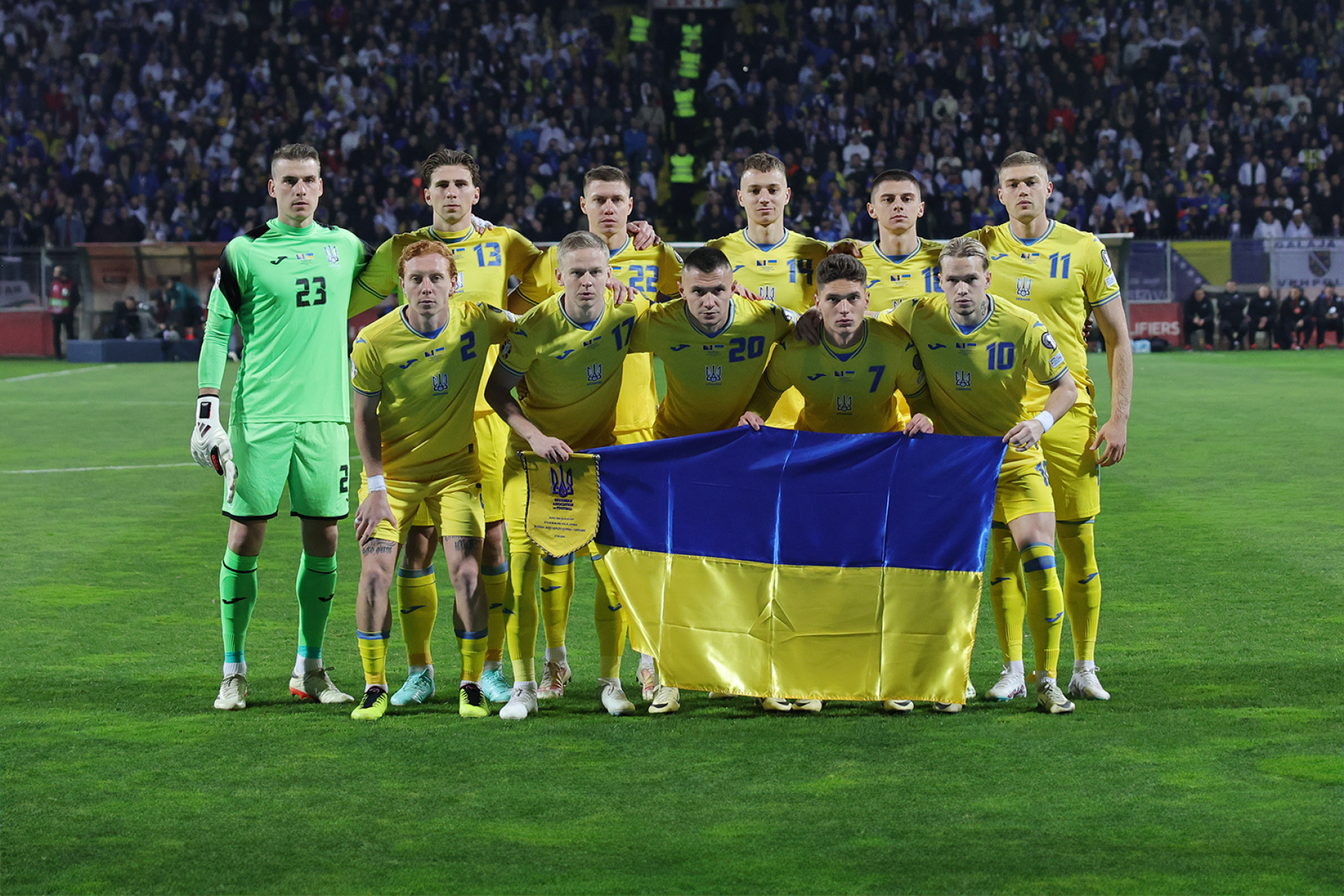
Here’s everything you need to know about Ukraine ahead of the UEFA European Football Championships in Germany—from the schedule to the squad to the manager.
On 17th June, Ukraine will play against Romania in Germany as its 2024 European Championship campaign begins. It will be the country’s fourth consecutive appearance at the continental football competition and arguably its most important since its debut in 2012, when Ukraine co-hosted the event alongside Poland. With everything that has ensued since then, that summer feels like another lifetime for many. So, with this year’s edition being the first major tournament Ukraine has qualified for, following Russia’s full-scale invasion in 2022, its importance for the country cannot be understated. Here’s everything you need to know to be prepared.
The qualification
Ukraine’s qualification for Germany was far from straightforward. For starters, due to ongoing security threats related to the war, Ukraine has been forced to play all of its international matches outside of the country from 2022 onwards. European nations with sizable Ukrainian populations, such as Germany, Czechia, and Poland, have become the side’s temporary ‘homes’ over the past two years.
In addition, Ukraine was drawn in a group with both the winners and runners-up of the previous Euros: Italy and England, with North Macedonia and Malta making up the rest of the group. Despite getting impressive draws against both of the Euro 2020 finalists, Ukraine eventually finished in third place and did not automatically qualify for this summer’s tournament.
However, because of a high enough ranking in another UEFA competition (Nations League), they were given a lifeline in the form of a play-off route. In March of this year, Ukraine navigated past both Bosnia and Iceland in the aforementioned play-offs, coming from behind to win 2-1 twice to finally seal their spot in Germany this summer.
The manager
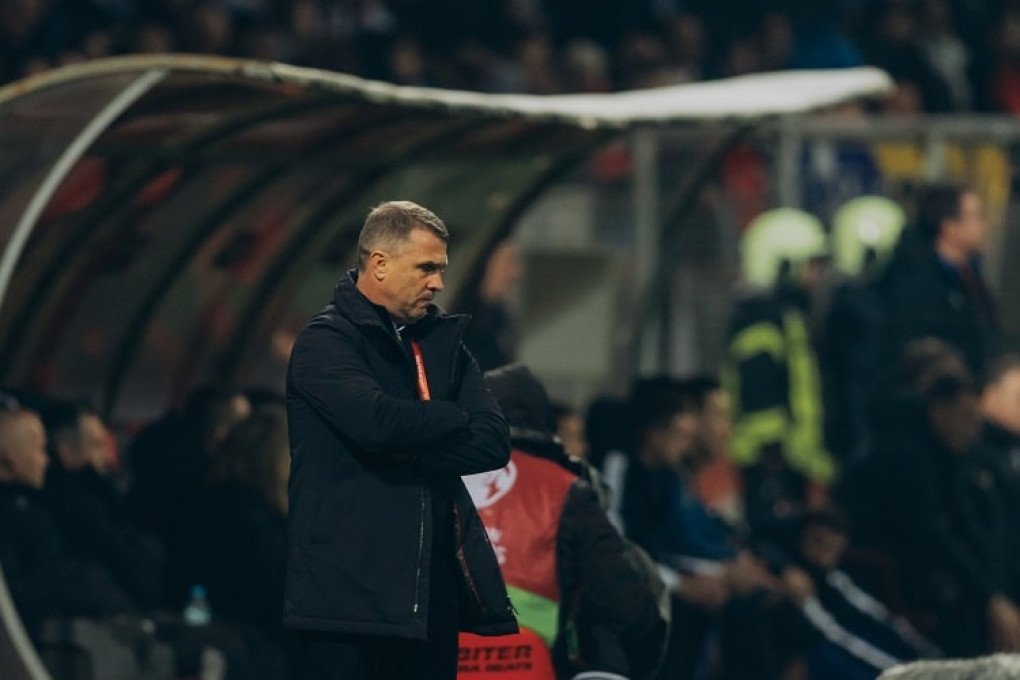
Following a notable playing career that saw Serhiy Rebrov form a memorable partnership with fellow icon Andriy Shevchenko at Dynamo Kyiv and Ukraine, as well as spells at English clubs Tottenham Hotspur and West Ham, amongst others, he seamlessly transferred that pedigree to the dugout. Following prolonged club successes at Dynamo Kyiv, Ferencvaros (Hungary), and Al Ain (UAE), Rebrov took over the vacant Ukraine managerial role in June 2023.
Rebrov is currently regarded as the best Ukrainian head coach of his generation. With a seasoned backroom staff that features a number of Spanish specialists; his sides like to play progressive football. At this summer’s tournament you can expect a 4-3-3 style with a heavy focus on possession and passing. Usually starting from the back and ending in chances created by quick transitions across the pitch. This aims to effectively utilize the youth and pace that his squad has in abundance.
The squad
In a press conference ahead of this summer’s tournament, veteran winger Andriy Yarmolenko argued that the current crop of Ukraine players is the greatest the country has ever had. He defended his statement by adding that never has a squad had so many young, quality players who were simultaneously playing and performing well in some of Europe’s top leagues. Four of the squad represent the English Premier League sides, another four represent Spain’s La Liga, and others represent Portugal, Italy, and Belgium. A few others could take similar steps with good results in Germany, too.
However, while this squad’s overall quality may well be one of Ukraine’s best-ever generations, the side will need to first emulate the 2006 World Cup or 2020 Euro sides that reached the quarter-finals of their respective competitions to truly enter the ‘greatest’ conversation. And what better stage to attempt it than in Germany this summer?
Benfica’s Anatoliy Trubin started throughout the qualifying campaign and was seen as the favorite to maintain the # 1 jersey.
However, following Andriy Lunin’s stellar season as Real Madrid’s first-choice goalkeeper—during which he surprisingly stepped in for the injured Thibaut Courtois and helped the Spanish side win both La Liga and the Champions League—the Krasnohrad born player will likely deputize between the posts, as he did during the playoffs in March.
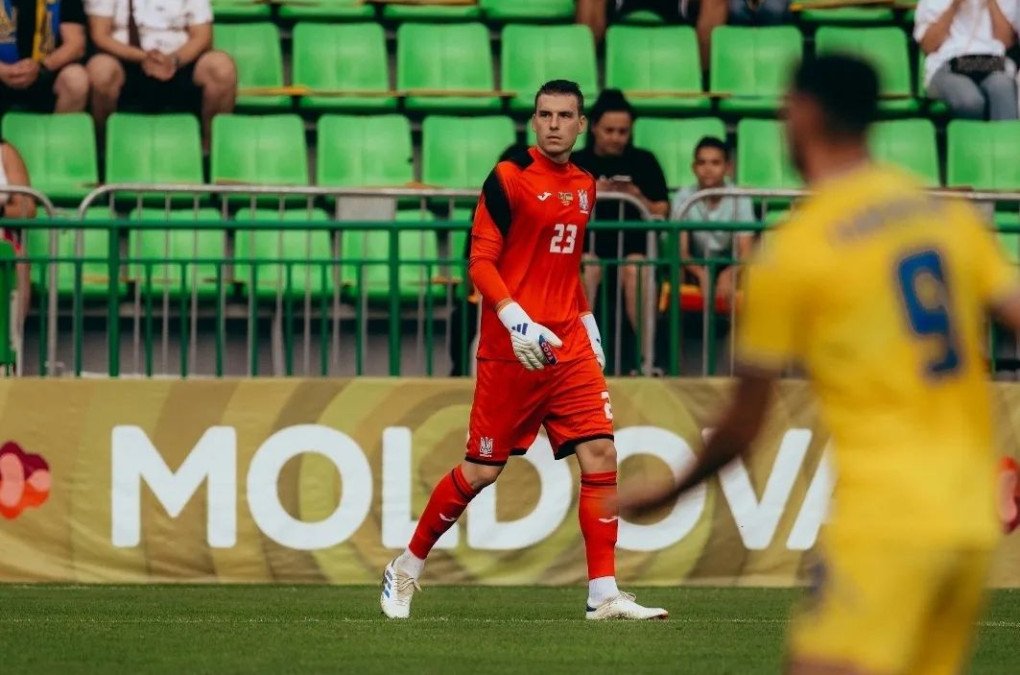
Incidentally, Lunin’s Kharkiv oblast hometown is making a name for itself as fertile ground for producing elite level footballers. Ukraine teammate and Chelsea star Mykhaylo Mudryk also hails from the city with his parents still residing there. Lunin recently shared in an interview with Vzbirna that they did cross paths from time to time in their youth despite being 2 years apart in age; both having attended the same school and regularly playing on the same pitches.
AFC Bournemouth’s Illya Zabarnyi made his debut for Ukraine at the age of 18 and hasn’t looked back since. Now aged 21 and a certified starter for a second consecutive Euros, he will bring composure and solidity to the heart of Ukraine’s defense.
It subsequently comes as no surprise that the defender possesses a sense of modesty and maturity way beyond his years both on and off the pitch. He’s been a regular contributor to numerous war related fundraisers over the past 36 months. Ukrainian football vlogger Dmytro Povoroznyuk recently revealed that Zabarnyi even helped close a rather large donation drive for FPV drones by providing the outstanding amount required of 150,000 UAH ($3,725).
The Cherries man should be joined by his fellow Premier League compatriot, Everton’s Vitaliy Mykolenko at left back. Mykolenko has been recovering from an ankle injury for the past 6 weeks and picked up a further unrelated problem against Moldova in the final friendly so it’s currently touch and go as to whether he will feature from the outset of the tournament.
Last year, Mykolenko confirmed that his own father had been serving in Ukraine’s military. The former Dynamo Kyiv defender is not the only player with family members in the Ukraine squad to have family members involved in the Ukrainian Armed Forces. Unfortunately, fellow squad member and Dynamo Kyiv man Oleksandr Tymchyk’s brother was killed in action following a Russian artillery strike near Mariinka, Donetsk Oblast in August 2023.
Crimea born Mykola Matvienko and his Shakhtar teammate Yukhym Konoplya should complete Rebrov’s back four. Whilst Dnipro-1’s Oleksandr Svatok could feature if Ukraine opt to play with five at the back. Last November, Svatok captained his club side during the longest game of football in Ukrainian history. As a result of persistent air raid alerts over the city of Dnipro that day, their Premier League match against Oleksandriya took 4 hours and 36 minutes to finish from its initial kick off time. Such delays occur regularly during the domestic football season.
According to Kicker, Ukraine has one of the youngest final squads on average at the 2024 tournament. Former stalwart starters such as Andriy Yarmolenko and Taras Stepanenko are no longer guaranteed to make the first XI after injury-hit seasons. While their replacements have adequately stepped up and made positions their own.
22-year-old Volodymyr Brazhko is now considered the future of Ukraine’s midfield. The defensive midfielder had his breakthrough season with club side Dynamo this term and debuted in March during the playoffs. Brazhko hails from Zaporizhzhya, where his grandparents still live. He even paid the city a visit just before he departed for the Euros. In October 2023, Torpedo stadium in the city, where he spent most of his youth and just 500 metres from his childhood home took heavy damage from a Russian missile attack. The midfielder shared videos on his social media of burnt out buildings and craters on the pitch.
Sadly, Torpedo Stadium is just one of over 350 pieces of sporting infrastructure that have been completely destroyed or severely damaged by Russian attacks. Andriy Yarmolenko’s hometown of Chernhiv and the ground of his first club Desna was so substantial that the team had to fold as a result of the damage to the stands, the pitch, the training ground and the club’s office buildings.
Meanwhile, Shakhtar’s Giorgi Sudakov has similarly stepped up for both club and country and is now one of the first names down on Rebrov’s team sheet. The attacking midfielder’s dynamic dribbling and passing ability are traits that are attracting interest from Europe’s top clubs.
A shop window tournament awaits for the young player. His relationship with former Shakhtar teammate Mykhaylo Mudryk (now at Chelsea) will also be interesting to follow. The two have played together since the academy days and have an almost telepathic connection when playing together. Hopefully this will be able to unlock Mudryk’s attacking potential that has been intermittently stunted during his time at Chelsea.
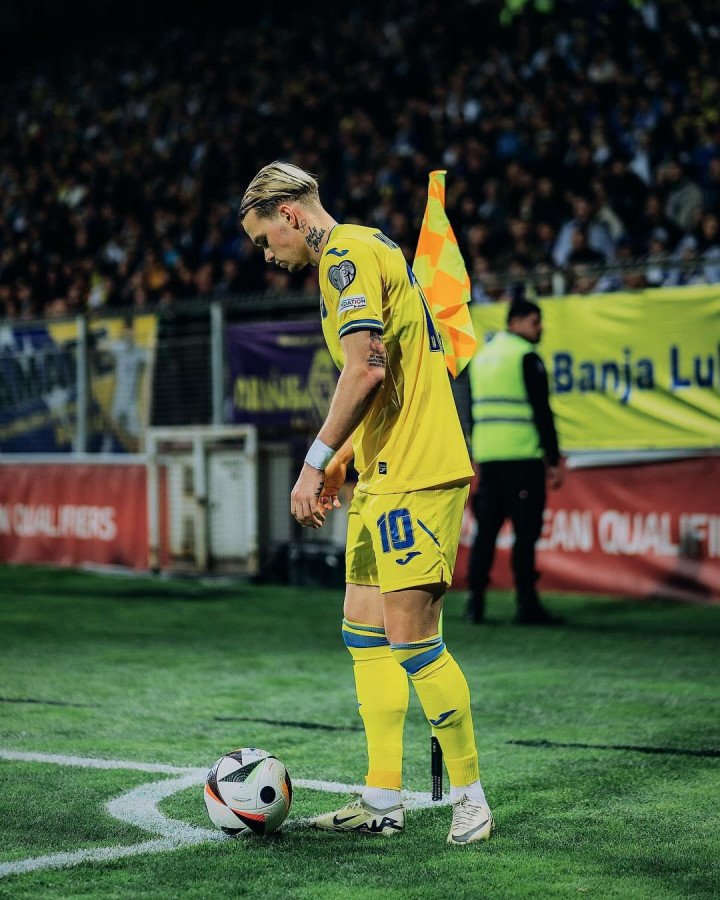
Due to how young the overall squad is, Oleksandr Zinchenko turns out to be one of the oldest and experienced players in the expected starting line up. His leadership skills will help Ukraine through tough periods of matches as will his passing. Additionally, if Mykolenko doesn’t recover from his own injury problems, the Arsenal man could be forced to slot in at left back in his place.
Since February 2022, Oleksandr Zinchenko has been the most high profile Ukrainian footballer in relation to sharing his country’s plight across the world. As a United24 ambassador, alongside UAF President Andriy Shevchenko, he consistently makes media appearances in relation to the war, actively takes part in fundraising efforts such as Game4Ukraine and even admitted that he has donated close to £1 million of his own money to various war related causes.
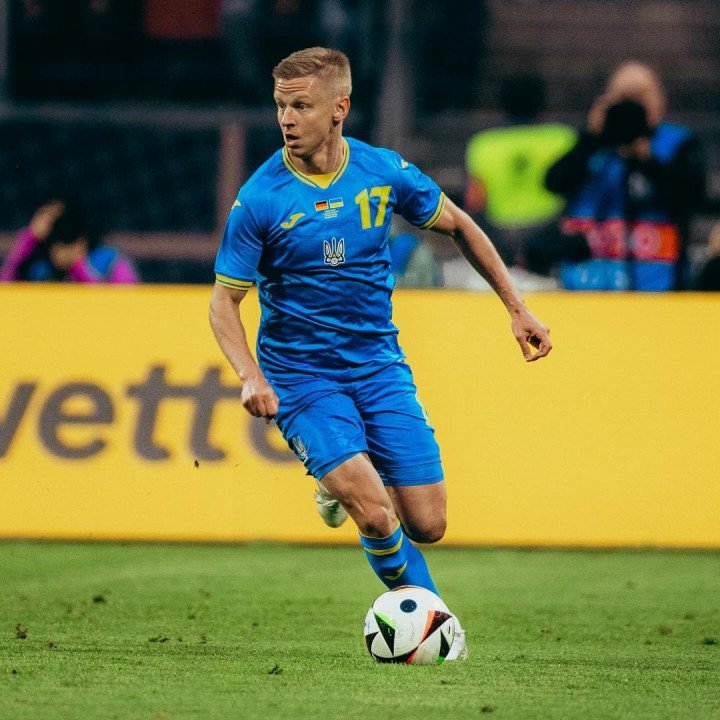
Girona’s Viktor Tsyhankov has solidified the right wing position over the past couple of years. Since his move to La Liga, his role in the national team has become even more influential. It’s guaranteed that he will be involved in most of Ukraine’s positive attacking moves, be it through assists or goals. 3 of which helped Ukraine secure vital victories over the qualifying campaign.
Leading the line will be Tsyhankov’s Girona teammate Artem Dovbyk. Dovbyk’s rise to prominence began during the previous EUROs, where his late goal against Sweden elevated him to overnight ‘cult hero’ status after he sent Ukraine into the quarterfinals. Since then, he has showcased his scoring prowess for Dnipro-1 and most recently Girona, scoring 24 goals and winning the Pichichi Trophy (La Liga top scorer) in his first season. He will be looking to replicate that form for the Zbirna this summer too!
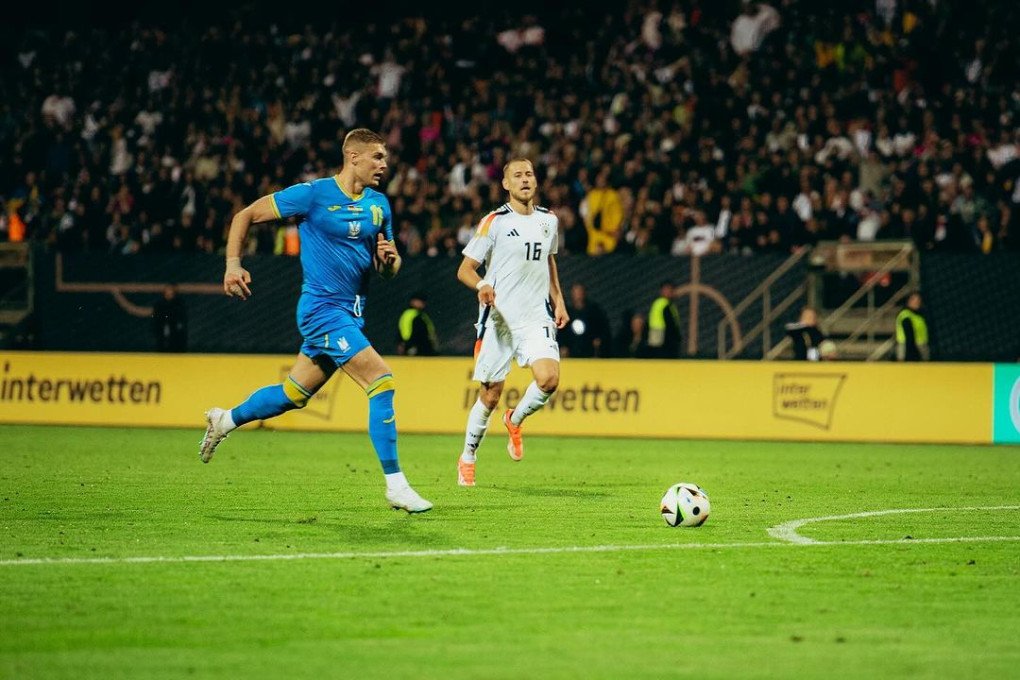
Away from scoring goals, Dovbyk regularly keeps in contact with members of Ukraine’s Armed Forces. He’s mentioned that a lot of them send him support and he tries to keep in regular contact with as many of them as he can. Subsequently, he regularly contributes with donations to numerous causes, shares petitions to help soldiers obtain posthumous state recognition and alongside his agent has bought a number of vital vehicles for battalions in his native Cherkasy.
The fans
Those watching back home will undoubtedly feel the impact of Ukraine’s sporting achievements. Positive showings will help lift spirits and boost morale for those following from the frontlines and offer respite and welcome distraction for those trying to temporarily escape the day-to-day realities of war. That is, if ongoing power shortages, as a direct result of Russian attacks on Ukraine’s energy infrastructure, allow them to do so.
Thousands of Ukraine’s football ultras movement members actively serve in Ukraine’s Armed Forces. Some have done so since 2014, with many more joining from 2022. Hundreds have sadly lost their lives. It was very much Ukraine’s hardcore football fans that made up a core of the initial volunteer battalions when Russia invaded the East a decade ago.
They won’t be in the stands of German stadiums for obvious reasons this summer. However, many of them maintain links with the players and keep in contact regularly. There have been multiple occasions where national team players have helped close vital military and humanitarian online fundraisers as a result of these relationships and also their understanding of their respective responsibilities. In particular, the footballers who play for the clubs in Europe’s top leagues know that they have privileges in the form of finances and social media presence and are expected to utilize them accordingly.
Despite the Ultras’ understandable absence, Ukraine will still be able to rely on fervent support from the stands in Germany too. Ukraine’s European diaspora has long followed the side over the past three decades. Germany is home to a very sizable portion of that pertinent following. Since 2022, the numbers of Ukrainians in the European Union has increased exponentially as a result of the war. In particular, many of those initially displaced women and children are expected to compliment those who will be travelling from North America, the UK and beyond to cheer Ukraine on in Munich, Düsseldorf, Stuttgart and beyond.
The preparation
Ahead of the tournament, Serhiy Rebrov’s men have taken on three friendly warm-up fixtures aimed at ensuring the side’s optimal preparation for a potential upcoming month-long campaign. With Olaf Scholz in attendance, they drew 0-0 with Euros hosts Germany in Nurnberg. Followed by a 3-1 loss to Poland, where a reserve side was given minutes and then a 4-0 win in Moldova to close off the warm up schedule. The three opponents bear similarities, in terms of playing style and possible squad quality levels, to Ukraine’s upcoming group-stage rivals Belgium (Germany), Slovakia (Poland), and Romania (Moldova). Serhiy Rebrov was left fully satisfied with the 2 week period ahead of the campaign and believes his side are now almost physically ready to approach their competitive fixtures.
Fitness levels seem high. There’s a sense of psychological readiness amongst the players too. A majority of the Ukraine squad called up to the Euros have, to varying degrees, personally experienced the surreal nature of wartime football in Ukraine. Over a third of the team still ply their trade for clubs within the country. With behind closed doors matches and mid-game air raid alert interruptions being the norm now, the majority of the squad are weathered to the realities of war. With such life experiences, a major tournament is no longer viewed as a daunting concept. All the while, high expectations of going far in the tournament with such a talented squad add a welcome kind of pressure that the team are relishing to meet.
Ukraine’s Euro 2024 fixtures
Group E
Romania v Ukraine (17th June — 15:00 CET) — Munich
Slovakia v Ukraine (21st June — 15:00 CET) — Düsseldorf
Ukraine v Belgium (26th June — 18:00 CET) — Stuttgart
Being represented here, at the Euro in Germany, is very good for Ukraine. We want to be part of the European community, so such a forum is important to our country. I am glad that we are here now… Unfortunately, football is not in the foreground in our country right now. It is important for everyone in Europe and around the globe to support Ukraine during the war. Eventually, I am sure that football will be number one in our country again, very soon.”
Serhiy Rebrov

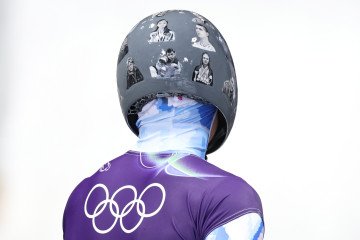

-6ead6a9dd508115a5d69759e48e3cad1.jpg)
-29a1a43aba23f9bb779a1ac8b98d2121.jpeg)
-7f50738271c122a9b5e663cb80703dd6.jpg)

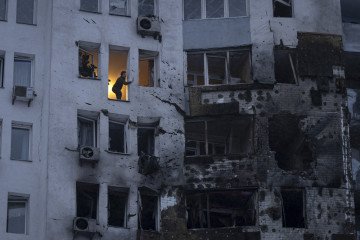
-554f0711f15a880af68b2550a739eee4.jpg)